Berlin Alexanderplatz Blu-ray Movie
HomeBerlin Alexanderplatz Blu-ray Movie 
Criterion | 1980 | 903 min | Not rated | Feb 12, 2019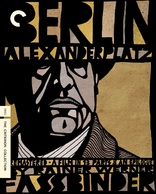
Movie rating
7.7 | / 10 |
Blu-ray rating
| Users | 0.0 | |
| Reviewer | 4.5 | |
| Overall | 4.5 |
Overview
Berlin Alexanderplatz (1980)
Hulking, childlike ex-convict Franz Biberkopf attempts to "become an honest soul" amid the corrosive urban landscape of Weimar-era Germany.
Starring: Volker Spengler, Hanna Schygulla, Brigitte Mira, Roger Fritz, Gottfried JohnNarrator: Rainer Werner Fassbinder
Director: Rainer Werner Fassbinder
| Foreign | Uncertain |
| Drama | Uncertain |
| Crime | Uncertain |
Specifications
Video
Video codec: MPEG-4 AVC
Video resolution: 1080/60i
Aspect ratio: 1.37:1
Original aspect ratio: 1.33:1
Audio
German: DTS-HD Master Audio Mono
Subtitles
English
Discs
Blu-ray Disc
Four-disc set (4 BDs)
Playback
Region A (locked)
Review
Rating summary
| Movie | 5.0 | |
| Video | 4.0 | |
| Audio | 4.0 | |
| Extras | 4.0 | |
| Overall | 4.5 |
Berlin Alexanderplatz Blu-ray Movie Review
Reviewed by Jeffrey Kauffman September 1, 2019Berlin Alexanderplatz is evidently one of the more monolithic pieces of German literature, and as with most monoliths, it can be a bit daunting to approach. Some of the supplements included on this multi-disc set from The Criterion Collection feature interviews with various people who attempted to wade their way through what is evidently an extremely dense narrative by novelist Alfred Döblin (one which I readily confess I personally have never read). And in fact in listening to some of these intrepid if ultimately kind of frustrated people, some of whom mention Berlin Alexanderplatz as a kind of rite of passage reading assignment that they had to endure during their school years, I started thinking of what might be an analog for American students "forced" to read some "classic", ultimately landing on the works of William Faulkner, since Faulkner’s writing seems to have some inherent obstacles that may prevent “easy access” and/or quick comprehension. Berlin Alexanderplatz was adapted as a feature film way back in 1931, in a version that had a screenplay co-written by Döblin, but which suffered from fairly heavy redactions, as its running time of about an hour and a half probably indicates (Criterion has included this 1931 version as a supplement on this release). The miniseries craze that swept over domestic American television circa the mid to late seventies, as probably best exemplified (or at least best remembered) by Roots: The Complete Original Series provided Rainer Werner Fassbinder with the appropriate format to explore Döblin's sprawling tale, and, like its source material, the result is probably also monolithic.
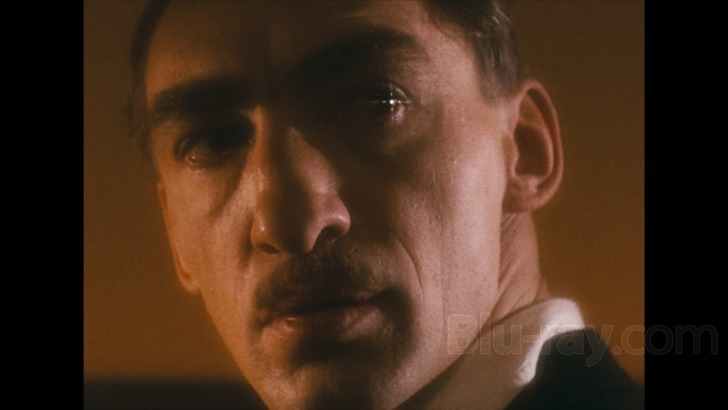
There have been so many memorable films documenting the moral turpitude of both pre-war and World War II era Germany that a list would stretch a considerable ways, but in many ways Berlin Alexanderplatz plies at least some of the same general zeitgeist in its depiction of a convict named Franz Biberkopf (Günter Lamprecht), who, as the piece begins, is just getting out of stir for having killed his girlfriend several years previously. Almost unbelievably, he quickly makes a play for his deceased’s sister, a kind of naif named Minna (Karin Baal). Another woman named Lina (Elisabeth Trissenaar) is soon introduced, just the first of a series of females that also includes Eva (Hanna Schygulla) and Mieze (Barbara Sukowa), who all waft in and out of a wide ranging cast of characters and subplots.
Biberkopf is a “man with a past”, something that comes to haunt him and leads to some fateful decisions, including employment that requires an armband with a famous symbol on it. But Berlin Alexanderplatz may not be truly “political” in any sense other than its depiction of class distinctions and what might be termed the overall desperation of the German people in the 1920s. An inescapable feeling of entropy ultimately sucks Biberkopf’s story down an almost literal rabbit hole of madness, something that again attempts to make a perhaps “culture wide” insanity more focused on one individual.
This is obviously a huge, maybe gargantuan, undertaking, and as such it requires a bit of patience. It in fact reminded me perhaps not so much of Faulkner as Eugene O’Neill, with its slow but steady examination (and exposing) of characters. The story remains coherent despite the sheer number of characters it offers, and performances are typically superb. Fassbinder may have arguably been able to judiciously trim some elements here, but the overall emotional impact of Berlin Alexanderplatz is quite impressive.
Berlin Alexanderplatz Blu-ray Movie, Video Quality 
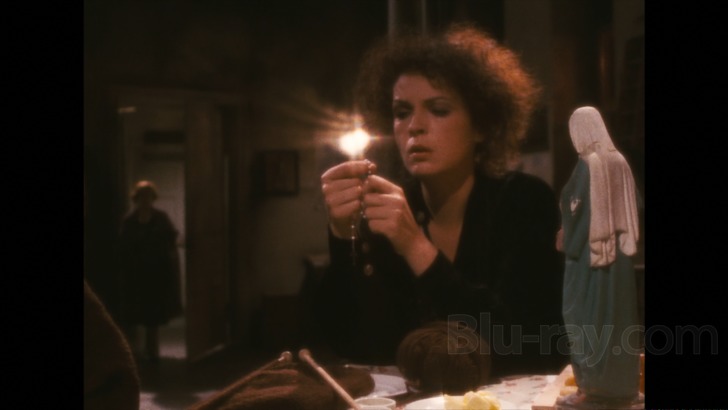
Berlin Alexanderplatz is presented on Blu-ray courtesy of The Criterion Collection with an AVC encoded 1080p transfer in 1.37:1. Criterion's insert booklet contains the following information on the transfer:
Berlin Alexanderplatz is presented in its original aspect ratio of 1.37:1. On widescreen televisions, black bars will appear on the left and right side of the image to maintain the proper screen format. This digital transfer was created in 2K resolution on an ARRISCAN film scanner from the original 16mm A/B roll negatives. The scanning and color grading were done under the supervision of director of photography Xaver Schwarzenberger and editor Juliane Lorenz.The restoration featurette included on Disc Four of this release is a rather interesting piece from a number of standpoints, not the least of which is Schwarzenberger stating outright that the 16mm source has some inherent issues in terms of general detail levels and what might be termed pretty abundant grain in certain moments (more about that below). As such, while expectations are probably best at least a little tempered, the restoration done on this sprawling piece is often quite impressive. There's still an undeniable softness to many shots, especially when Fassbinder chooses to backlight scenes, but there can also be quite commendable detail in close-ups (see screenshot 1 for an example). The miniseries virtually bathes in brown tones, as can probably be pretty easily gleaned in many of the screenshots accompanying this review, and that can tend to make the palette seem almost monochromatic and a bit on the drab and dowdy side. In the darkest interior scenes, and with this prevalence of browns and other darker hues, shadow detail can occasionally be lacking.
The 1.0 DTS-HD Master Audio soundtrack was mastered at 24-bit from the original 35mm magnetic tapes. Clicks, thumps, hiss, hum and crackle were manually removed using Pro Tools HD and iZotope RX.
There is intermittent fuzziness, not necessarily dependent upon how well lit scenes are, but often appearing in some dimmer moments (see screenshots 2 and 23 for two examples). Some of this really quite noticeably grainier, generally rougher and less detailed material comes courtesy of opticals, which in some cases at least are kind of unusually employed in that Fassbinder offers little interstitial commentary or descriptive intertitles as well as more outre elements like mathematical equations, and he seems to have utilized opticals in some cases to do these, despite the fact that some at least do not have a "traditional" optical like a dissolve and in fact are "hard" edited with cuts into and out of the text or image element. I'm therefore assuming some kind of dupe element was utilized for these "bookending" segments in some of these changeovers, as evidenced by the roughhewn look of the footage leading into and out of these moments, and the difference is so noticeable that you can pretty much start to predict when either one of these "in between" aspects or a more traditional optical like a dissolve is about to show up since the image quality varies so greatly. While I couldn't authoritatively establish exactly what they were discussing, when cinematographer Schwarzenberger and his assistant mention "de-graining" in one of the supplements in this set (see below), I'm thinking maybe it was with regard to some of this chunkier looking material.
Berlin Alexanderplatz Blu-ray Movie, Audio Quality 
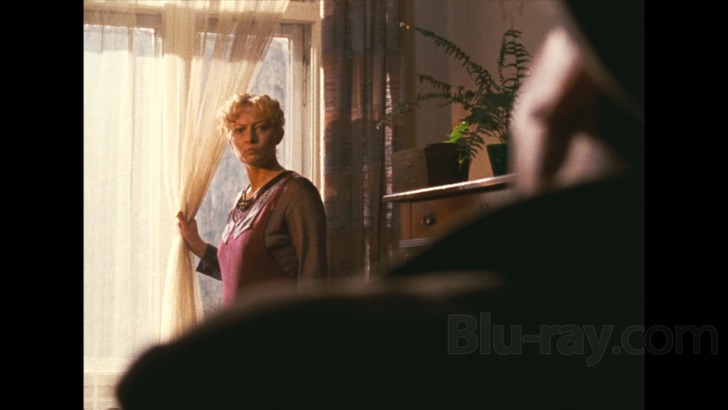
Berlin Alexanderplatz offers a rather nicely detailed DTS-HD Master Audio Mono track in the original German. I'm assuming some of the source cues are archival recordings, and as such fidelity in those moments can be a bit wobbly, but otherwise this offers dialogue and some well done sound effects work with clarity and precision. It looks to me like many actors, especially supporting players, may have been dubbed and may not have even been speaking German during the filming (as evidenced by the wide disparity between lip movements and sounds emanating from them), and so sync can be "loose", as they say. Occasional narration and/or voiceover also sounds fine throughout the proceedings.
Berlin Alexanderplatz Blu-ray Movie, Special Features and Extras 
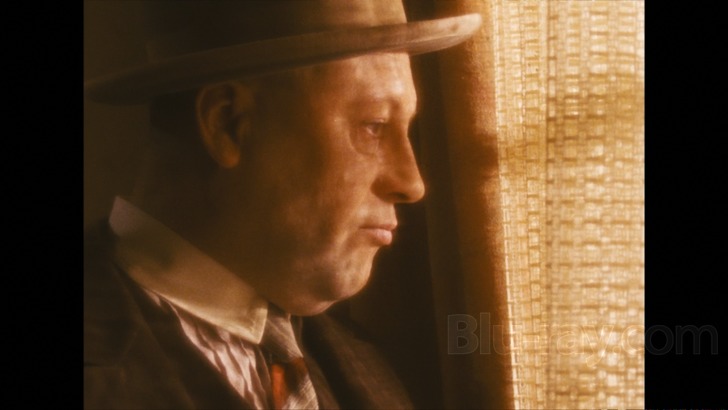
- Fassbinder's "Berlin Alexanderplatz" a Mega Movie and History (1080i; 1:05:10) is an in depth piece by Juliane Lorenz, who edited the miniseries and runs the Fassbinder Foundation. In German with English subtitles.
- Notes on the Making of "Berlin Alexanderplatz" (1080i; 44:10) is a fascinating piece shot in 1979 by Hans Dieter-Hartl as the miniseries was being produced. In German with English subtitles.
- "Berlin Alexanderplatz" Remastered: Notes on the Restoration (1080i; 31:58) is from 2006 and features Juliane Lorenz, and includes some interesting behind the scenes footage of the restoration process along with interviews, including with director of photography Xaver Schwarzenberger. There's quite a bit of time in this spent discussing "de-graining", for DNR-phobes who may chafe at such techniques. In German with English subtitles.
- Berlin Alexanderplatz, 1931 Version (1080i; 1:23:56) will play kind of like a Clif's Notes version for those who have seen the entire Fassbinder version. In German with English subtitles.
- Peter Jelavich (1080i; 23:54) is an interesting interview with this history professor, who has written extensively about Berlin Alexanderplatz. In English.
As is their usual custom, Criterion has packaged this handsomely, with the Digipack enclosed in a nice slipbox, with a nicely appointed insert booklet.
Berlin Alexanderplatz Blu-ray Movie, Overall Score and Recommendation 
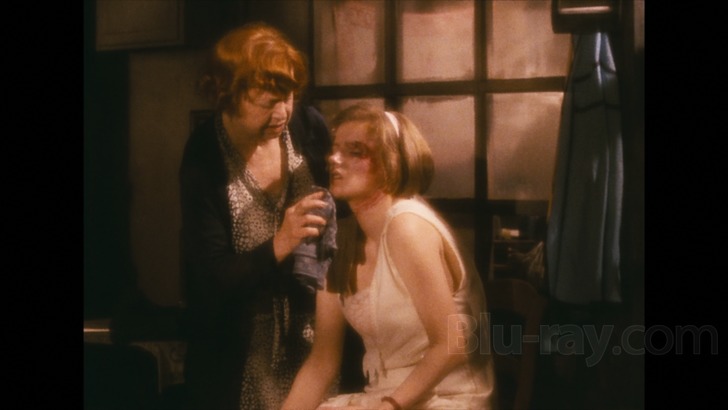
Berlin Alexanderplatz starts out in a resolutely realistic, if somewhat theatrical, manner, offering a bleak portrait of desperate people in uncertain times. But the piece ends in what is almost like the German equivalent of a Dennis Potter escapade, something that gives the miniseries a rather odd final impression. This is a convoluted and complex tale that has a glut of characters and a rather fulsome amount of intersecting subplots, but Fassbinder'a writing and direction keeps things well delineated, even if a few detours could conceivably have been eliminated. Technical merits are generally strong, and Criterion has included some appealing supplements. This won't be a piece for everyone, but for Fassbinder fans or those with an interest in the source novel or even pre-war Germany in general, Berlin Alexanderplatz comes Highly recommended.
Similar titles
Similar titles you might also like

Beyond the Hills
După dealuri
2012

The Marriage of Maria Braun
Die Ehe der Maria Braun
1978

Dr. Mabuse: The Gambler
Dr. Mabuse, der Spieler - Ein Bild der Zeit
1922

Pandora's Box
Die Büchse der Pandora
1929

Taxi
2015

In the Fade
Aus dem Nichts
2017

The Club
El Club
2015

The Turin Horse
A Torinói ló
2011

The Silence
Tystnaden
1963

Stroszek
1977

Through a Glass Darkly
Såsom i en spegel
1961

The Passion of Anna
En passion
1969

Thirst
Törst
1949

Pixote
Pixote: A Lei do Mais Fraco
1980

Scum
1979

The Magician
Ansiktet
1958

Veronika Voss
Die Sehnsucht der Veronika Voss
1982

Lilya 4-ever
2002

Metropolis
The Complete Metropolis
1927

On the Job
2013